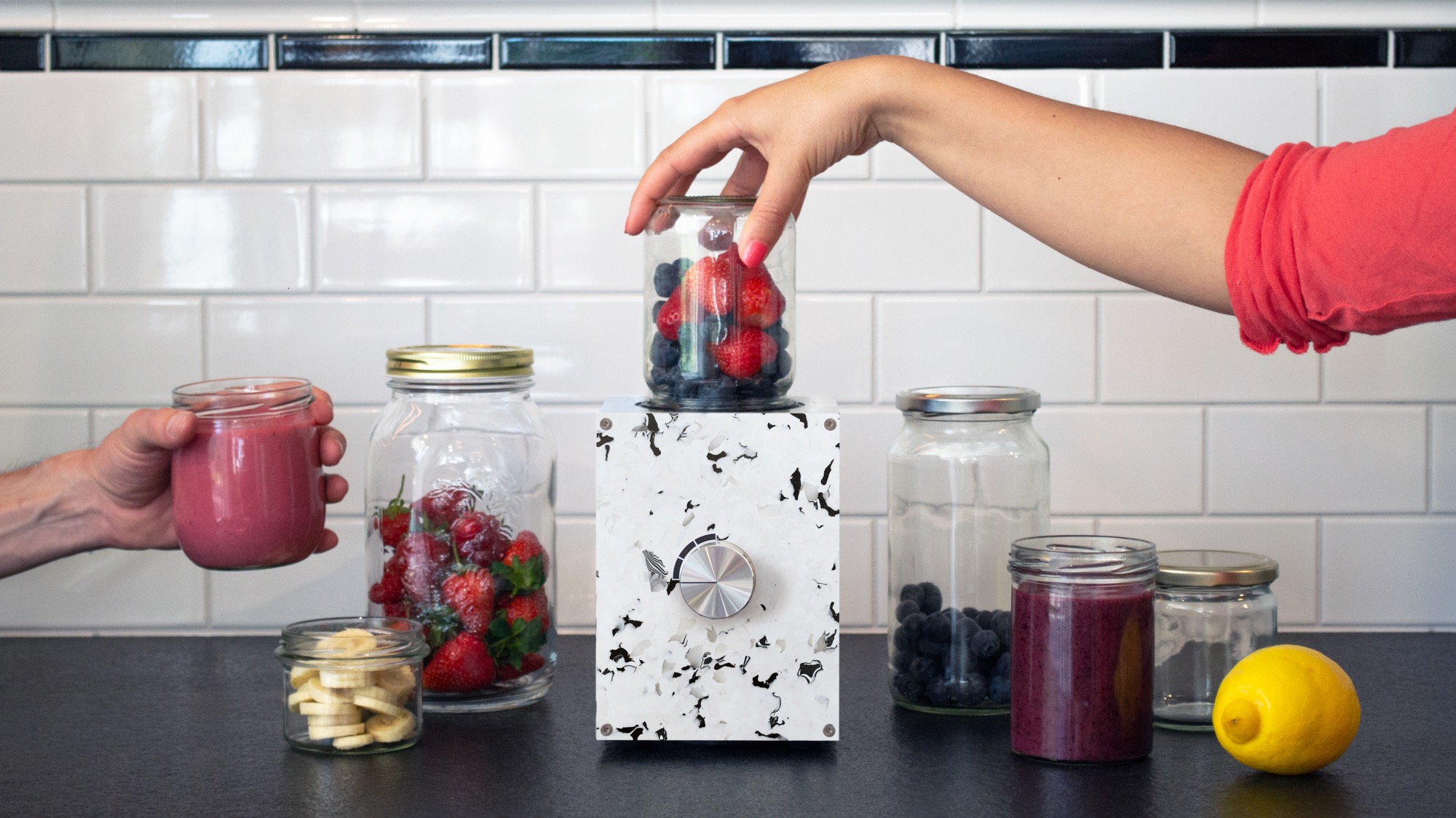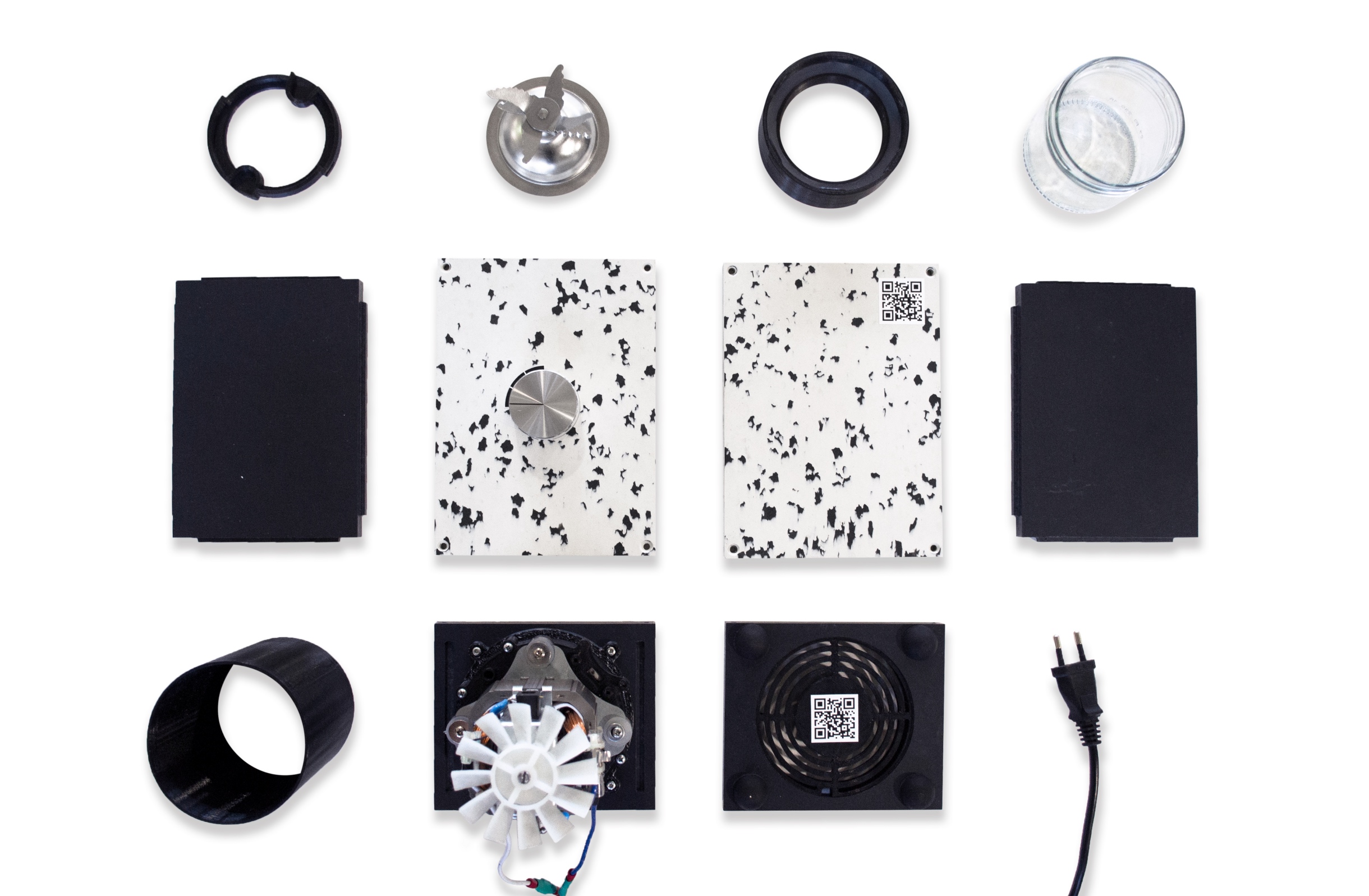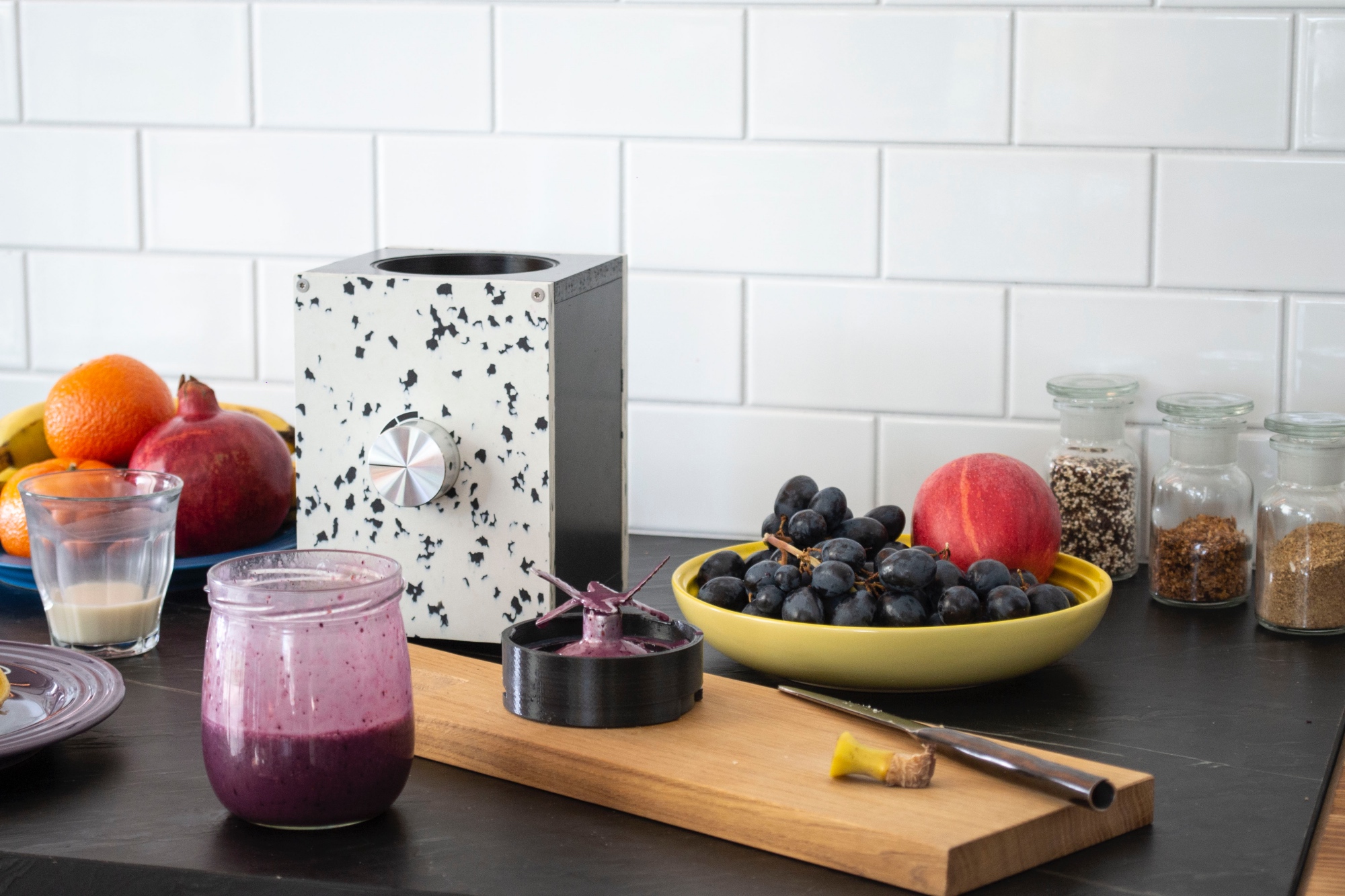re:Mix, the kitchen mixer good for people and the planet.

Useful information
- Team members
- Paul Anca Ken Rostand
- Country
- Germany
- Keywords
- open-source circular local distributed home-electronics kitchenware food
Short Description
A repairable kitchen mixer that reuses your glass jars.
Detailed Description
Frustrated with kitchen mixers breaking within months from purchase, we created a repairable, aesthetic kitchen mixer that’s made for the glass jars you have at home, is customizable, and built to last: re:Mix
The project is driven by the pressing issue of the 53m tons of e-waste generated yearly, as well as the need to lower CO2 emissions and improve working conditions. The aim is to create a distributed platform for home electronics made entirely out of locally-available, recycled and reused materials, reducing e-waste and emissions.
re:Mix allows users to reuse their own glass jars as containers. The prepared food can directly be consumed, stored, or taken on the go. It’s customisable with 100% regional, recycled plastic panels. Thanks to its modular design and connected services, re:Mix remains forever repairable, upgradable, and circular. It’s open-source and made in Berlin, from planet-friendly and regional materials, using 3D printers, CNC and local assembly.
Project Details
- Does your design take social and cultural challenges and human wellbeing into consideration?
Producing locally in Berlin, in social centres where we can verify how production is done, is a stark contrast to the typical, intransparent working conditions in Asian countries. Our assembly, packaging, delivery and repair partners are workshops for people in need, located in Berlin. Delivery distances are short, emissions are low, and dignified jobs are created on a local level.
Furthermore, we hope our designs will be replicated across the globe in diverse communities. Thanks to the power of open-source, this means we will not impose any top-down structures on them, but these communities can adapt the products locally to their own taste and culture.
- Does your design support sustainable production, embodying circular or regenerative design practices?
A modular design allows for quick assembly, disassembly, upgrading and repair using common tools, without the use of harmful adhesives and expensive industrial machinery. Strategies used are puzzle-like connections, a simplified design to allow for e.g. blade replacement, choosing a motor with replaceable brushes, using standard industry parts (e.g. a knob). Using existing glass jars means people can simply reuse what they already have, without consuming new resources. It also makes spare parts replacement easy.
Furthermore, we use a regional supply chain, lowering emissions and keeping economic value at a local level. To make re:Mix, we use 100% recycled plastic panels for the outer casing, which we CNC mill in Berlin. We 3D print the majority of plastic parts in our local workshop, and assembly is done at a social center in Berlin. We take special care that the materials we use are planet-friendly, and can be returned to the manufacturer once used. In the next few years, we will switch completely to local, reused parts (motors, cables, switches).
Lastly, our circular and digital services play a vital part in extending the product lifetime. Through a QR code on the device, we’re creating transparency between users, Open Funk, and our Supply Chain Partners, further extending the lifetime of the device: guided DIY repair videos, product passport (where and how was it built), and buy-back for resale of refurbished products.
- Does your design use principles of distribution and open source?
We call ourselves Open Funk because we are open at our core. Once we finalise the engineering and design of re:Mix, we will openly publish them open-source on Github. We will also build a community around it, for people to exchange best practices, and share new designs. We hope makers, entrepreneurs and designers will take re:Mix and adapt it to their own needs, wherever they might reside. A maker in Agbogbloshie, Ghana, might take our designs and build in used components from e-waste. An entrepreneur in Jakarta might use it to build a premium brand with local designs, and so on.
re:Mix is designed to work towards our vision of building a distributed platform for home electronics. Its parts are made so that they can be reproduced locally with basic workshop tools or in makerspaces around the world. The more complex parts have been specifically designed to allow 3D printing and CNC milling. By using a global network of 3D printers and sharing our designs open-source, we hope to make spare parts available at affordable prices, while avoiding issues such as high inventory costs or spare parts going out of stock. And by reusing standard components such as the glass jars, people can easily source these in their local communities.
The outer casing is designed with repurposing in mind. Using the puzzle-like joints, the same box-like construction can be used to build other home electronics, such as a toaster, a kettle or a lamp.
- Does your design promote awareness of responsible design and consumption?
re:Mix is a single device, but it lays the groundwork for an open design system of parts and components for home electronics. This empowers communities around the world to participate in the making of their own products, bringing together users, makers, entrepreneurs, recyclers, repairers, and manufacturers. What emerges is a global system of decentralised production based on locally repaired, reused and recycled materials.
Furthermore, by being open about how re:Mix is built and making DIY-repair accessible and simple, we hope to educate, inspire and inform people about what goes into their products, promote life-cycle thinking, and create transparency along our supply chain.Lastly, we hope to reduce consumption fivefold, by making the device last at least 5 times longer than usual devices.
Images


